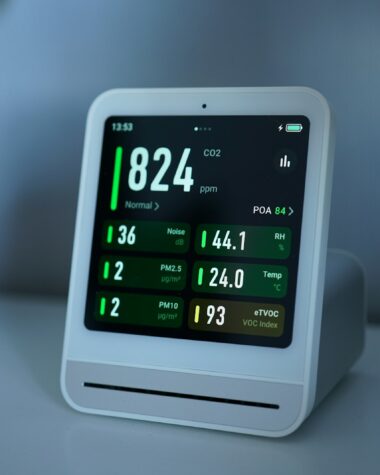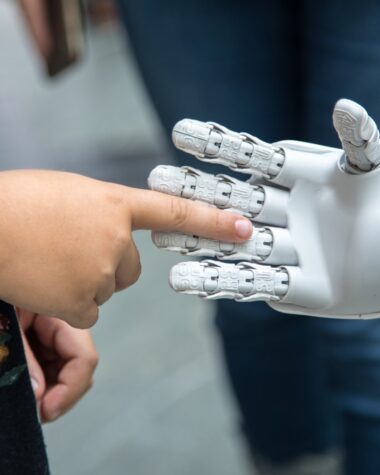In today’s fast-paced world, productivity tools are everywhere, but not all technology boosts efficiency in a meaningful way. Many apps and devices promise increased output, yet end up adding stress through notifications, constant updates, or overly complicated systems. The key to modern productivity is finding technology that simplifies work, organizes tasks, and supports focus—without becoming another source of pressure.
Productivity doesn’t come from doing more; it comes from doing the right things effectively. The right tools streamline repetitive tasks, provide clarity, and allow individuals to concentrate on what truly matters. This article explores the most impactful technologies that enhance productivity while keeping stress levels low, helping you achieve more without feeling overwhelmed.
1. Task Management and Organization Tools
Simplifying Daily Workflows
Digital task managers, such as smart to-do apps, help individuals organize projects, deadlines, and priorities. Instead of juggling sticky notes or mental lists, these tools centralize tasks in one intuitive interface. Features like color-coded priorities, tags, and deadlines make it easier to visualize workloads and avoid missed commitments.
By structuring tasks in a manageable way, these platforms reduce the mental clutter that often contributes to stress. Users can focus on completing one task at a time while keeping long-term projects in view, improving both efficiency and confidence in handling responsibilities.
Seamless Collaboration
Many task management apps offer shared project boards, enabling teams to collaborate effortlessly. Assigning responsibilities, tracking progress, and communicating within the same platform reduces the need for endless email threads or meetings. Clear visibility of responsibilities ensures accountability without creating unnecessary tension or micromanagement.
2. Time Management and Focus Tools
Tracking Time Without Pressure
Time management apps help individuals understand how their hours are spent. By tracking work patterns, these tools reveal areas of inefficiency, enabling smarter scheduling. Some apps use visual analytics, showing which tasks consume the most time, helping prioritize high-impact activities.
Focus Enhancers
Apps that support concentration—like digital timers or focus mode features—allow users to work in defined intervals, reducing distractions. Techniques like the Pomodoro method, when supported by apps, encourage short breaks, preventing burnout and maintaining mental clarity throughout the day.
3. Cloud Storage and Collaboration Platforms
Reducing Digital Clutter
Cloud-based tools eliminate the stress of managing multiple versions of documents, backups, and local storage. Everything is accessible from any device, ensuring seamless workflow even when switching between home, office, or travel.
Efficient Teamwork
Collaboration platforms allow real-time editing, commenting, and sharing of files. This reduces redundant work and miscommunication, as team members can see updates instantly. Clear version control and easy access prevent frustration that arises from lost or outdated documents, allowing teams to focus on productivity rather than troubleshooting technical issues.
4. Automation Tools for Routine Tasks
Streamlining Repetitive Work
Automation reduces the mental load of repetitive tasks. Email filters, automated reports, and workflow tools ensure routine processes occur without constant manual intervention. This frees time and energy for creative or higher-priority work.
Minimizing Errors
Automating repetitive tasks also minimizes human error. Simple mistakes—like missing an email or miscalculating figures—can cause unnecessary stress and delays. Automation provides accuracy and consistency, giving individuals confidence that essential processes are handled reliably.
5. Mindful Notification Management
Reducing Distractions
One of the biggest sources of modern work stress is constant notifications. Productivity technology should enhance focus, not fragment attention. Tools that allow selective notifications or “focus modes” help maintain concentration by prioritizing important alerts while silencing non-essential interruptions.
Intentional Communication
Some apps allow scheduling of messages, batching notifications, or sending auto-replies during focus periods. These features create intentional communication practices, reducing the pressure to respond immediately and providing a calmer, more controlled workflow.
6. Digital Note-Taking and Knowledge Management
Centralizing Ideas
Digital note-taking apps allow users to capture ideas, resources, and meeting notes in a structured way. Searchable databases and tagging systems make retrieval effortless, saving time and mental effort. This prevents the stress of forgetting key information or losing track of ideas.
Integrating Across Platforms
Many note-taking tools sync with calendars, task managers, and email platforms. This integration ensures that information flows seamlessly between planning, execution, and review stages, creating a cohesive system that supports productivity naturally.
7. Health-Focused Productivity Tech
Encouraging Breaks and Movement
High productivity depends on well-being. Apps and wearables that remind users to take breaks, stretch, or hydrate encourage sustainable work habits. Short pauses improve focus, reduce fatigue, and prevent burnout, creating a healthier approach to achieving goals.
Stress Monitoring and Mindfulness
Some devices track stress levels, sleep patterns, and heart rate variability, offering feedback to optimize daily routines. Coupled with guided mindfulness or breathing exercises, these tools help individuals manage stress proactively, ensuring that productivity does not come at the cost of mental health.
Conclusion
Technology can either amplify stress or simplify life. The difference lies in choosing tools that enhance focus, streamline tasks, and reduce unnecessary cognitive load. From task management and time-tracking apps to automation, cloud collaboration, and health-focused devices, the right technology empowers individuals to be productive without sacrificing well-being.
By integrating these tools thoughtfully, productivity becomes a natural outcome of a well-structured environment. Instead of feeling pressured or overwhelmed, you gain clarity, efficiency, and control—transforming daily routines into smooth, manageable workflows that allow you to accomplish more while maintaining balance and peace of mind.








